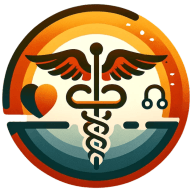4 Common Pitfalls for New Medical Directors and How to Avoid Them
Navigating the complexities of healthcare leadership can be daunting for new medical directors. This article distills the wisdom of seasoned experts to highlight the most common pitfalls and actionable strategies to sidestep them. Gain insights on adjusting communication, honing leadership skills, mastering team management, and embracing strategic marketing.
- Adjust Your Communication Style
- Develop Leadership and Management Skills
- Master Team Management and Collaboration
- Embrace Strategic Marketing
Adjust Your Communication Style
One of the most frequent challenges physicians face when stepping into leadership roles, such as medical directorship, is not adjusting their communication style. Physicians are trained to interact with patients and colleagues in a specific manner. They learn to gather information, diagnose issues, and recommend treatment plans. This approach is usually direct and instructive, which works well in clinical settings. However, in environments like boardrooms or executive offices, this style may not be as effective because physicians might not always be the experts on the topic at hand. To avoid this challenge, consider these tips: First, focus on listening more and speaking less. Second, instead of dictating a solution, guide the team toward a solution by asking questions. Use phrases like, "What if we tried this?" or "How about this perspective? What do you think?" instead of coming in and declaring, "This is what we need to do, and we need to do it now." Third, learn to adapt your communication style. A great communication rule is a twist on the golden rule: instead of treating others as you want to be treated, treat others as they want to be treated. People are more likely to listen, understand, and be open to your ideas if you communicate in a way that makes them comfortable.

Develop Leadership and Management Skills
Good day!
A frequent mistake made by physicians when entering a medical director's role is thinking that leadership and management skills are not important in the position. Although clinical skills are very necessary, most of the time the medical director has to communicate well in strategic decision-making and human management. Physicians focus on patient care and knowledge of medicine, but forget that their role also involves organization and interpersonal relationships. This is because they often don't take time to develop these human skills.
Being enrolled in a specific leadership development program or through a mentoring program should encourage a physician to seek leadership skills. Now that one has the opportunity to interact with a team, listen to feedback, and align the medical goals with organizational priorities, they develop the foundation for the success of the position. Seeking support and advice from other medical directors can be beneficial for understanding an issue and filling voids in knowledge or skillset.

Master Team Management and Collaboration
Good day,
The physicians fall into in becoming a medical director is the challenge of how to manage and influence teams as opposed to just working as a solo clinician. Most physicians practice in a hierarchy of in a clinical setting where we issue orders, but as a leader in administration you need to have diplomacy, collaboration, and the ability to inspire and motivate teams without implicit power status. New medical directors often have difficulties achieving buy in from staff that can result in pushback when changes are being made.
Physicians can avoid this by working very hard not merely on their technical competencies and training but instead working very hard on their interpersonal and leadership skills active listening, conflict resolution, emotional intelligence. Collaboration and Trust Building Engaging with frontline staff, soliciting feedback, and engaging team members in decision making promote trust and collaboration. Furthermore, mentorship from experienced medical leaders gives insights on organizational politics and establishing a positive organizational culture.
Another major hurdle is a grasp of financial and regulatory responsibilities. Many physicians moving to medical director roles don't have experience with budgeting, compliance, and policy implementation, which can cause frustration or ineffective decision making. To fill this gap, physicians need to learn about healthcare administration, via a full fledged education, spending time with finance and compliance teams, or slowly, and over time, integrating themselves into more of a leadership role until they can settle full time as director. All health professionals have additional organizational and interpersonal challenges that they meet.

Embrace Strategic Marketing
One big pitfall we see with physicians stepping into a medical director role is **underestimating the importance of brand positioning and patient communication.** Clinical expertise is key, but now they're also the face of the organization, shaping its reputation. Many struggle with messaging—either it's too technical or too generic to stand out.
The fix? **Embrace strategic marketing.** We help medical directors craft clear, compelling messaging that builds trust with patients and positions their organization as a leader. Whether it's through thought leadership, patient education content, or PR, strong branding isn't just for businesses—it's a must in healthcare too.


